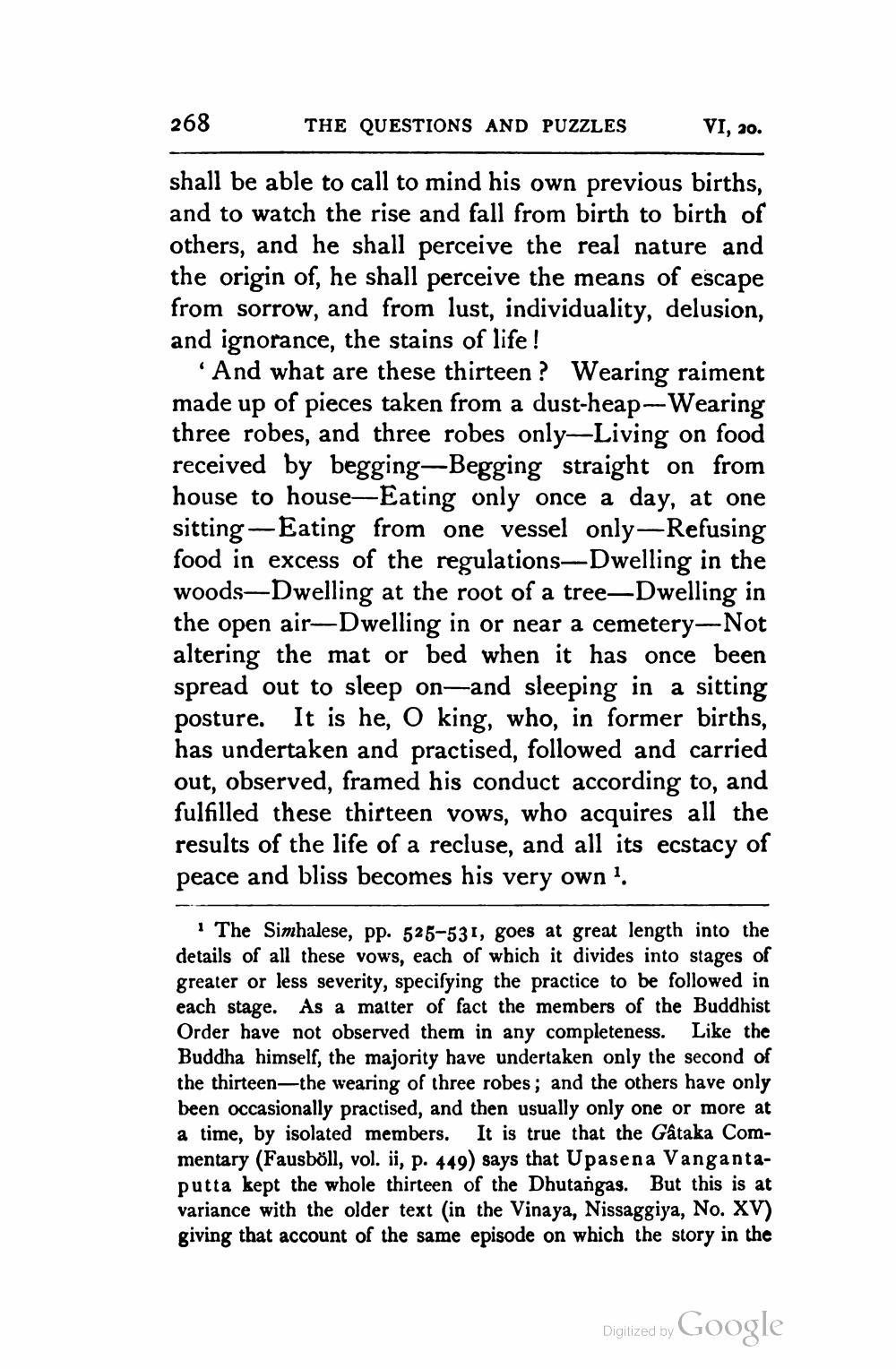________________
268
THE QUESTIONS AND PUZZLES
VI, 20.
shall be able to call to mind his own previous births, and to watch the rise and fall from birth to birth of others, and he shall perceive the real nature and the origin of, he shall perceive the means of escape from sorrow, and from lust, individuality, delusion, and ignorance, the stains of life!
* And what are these thirteen? Wearing raiment made up of pieces taken from a dust-heap-Wearing three robes, and three robes only—Living on food received by begging-Begging straight on from house to house-Eating only once a day, at one sitting-Eating from one vessel only-Refusing food in excess of the regulations-Dwelling in the woods-Dwelling at the root of a tree-Dwelling in the open air-Dwelling in or near a cemetery-Not altering the mat or bed when it has once been spread out to sleep on—and sleeping in a sitting posture. It is he, O king, who, in former births, has undertaken and practised, followed and carried out, observed, framed his conduct according to, and fulfilled these thirteen vows, who acquires all the results of the life of a recluse, and all its ecstacy of peace and bliss becomes his very own
The Simhalese, pp. 525-531, goes at great length into the details of all these vows, each of which it divides into stages of greater or less severity, specifying the practice to be followed in each stage. As a matter of fact the members of the Buddhist Order have not observed them in any completeness. Like the Buddha himself, the majority have undertaken only the second of the thirteen-the wearing of three robes; and the others have only been occasionally practised, and then usually only one or more at a time, by isolated members. It is true that the Gâtaka Commentary (Fausböll, vol. ii, p. 449) says that Upasena Vangantaputta kept the whole thirteen of the Dhutangas. But this is at variance with the older text (in the Vinaya, Nissaggiya, No. XV) giving that account of the same episode on which the story in the
Digitized by Google




